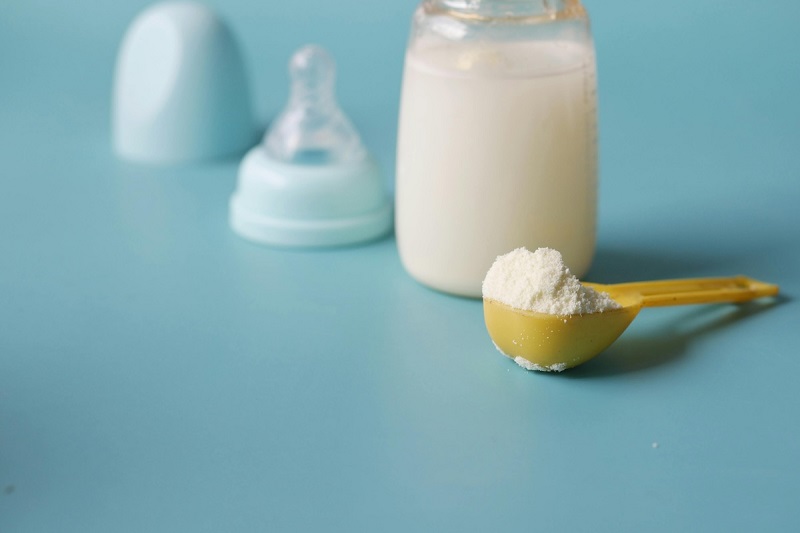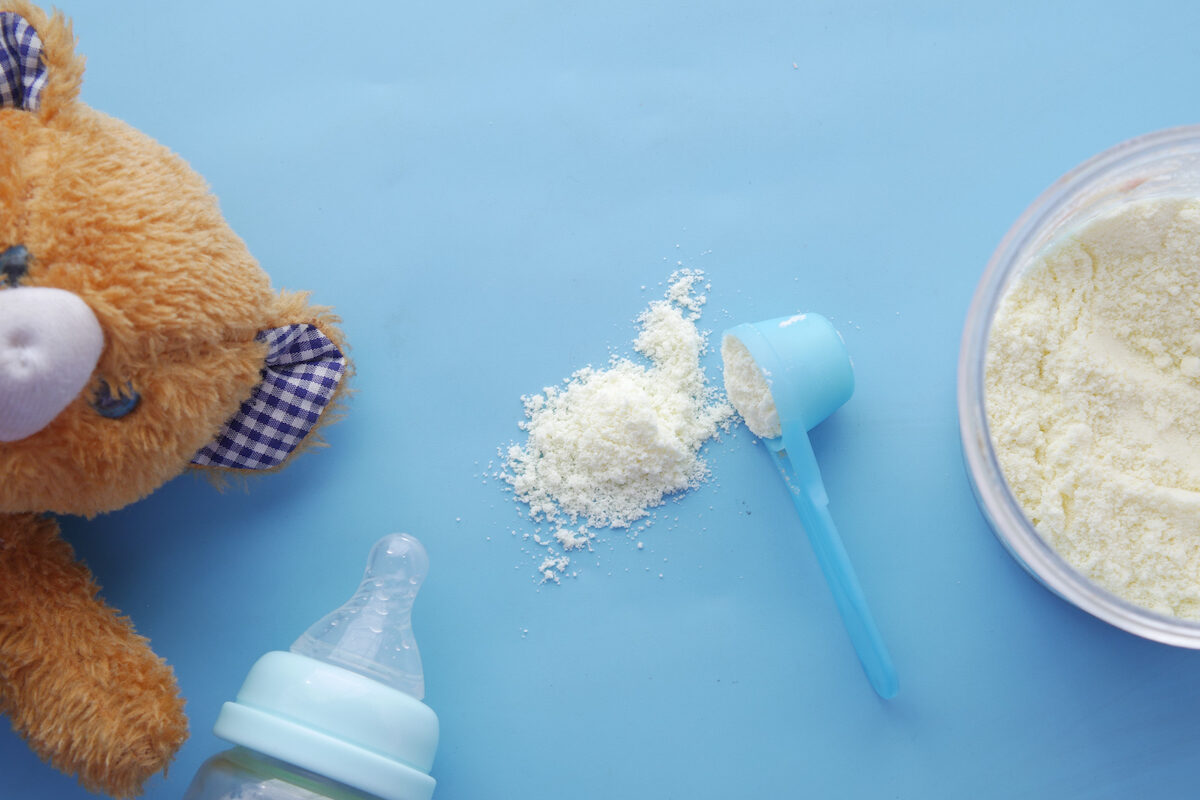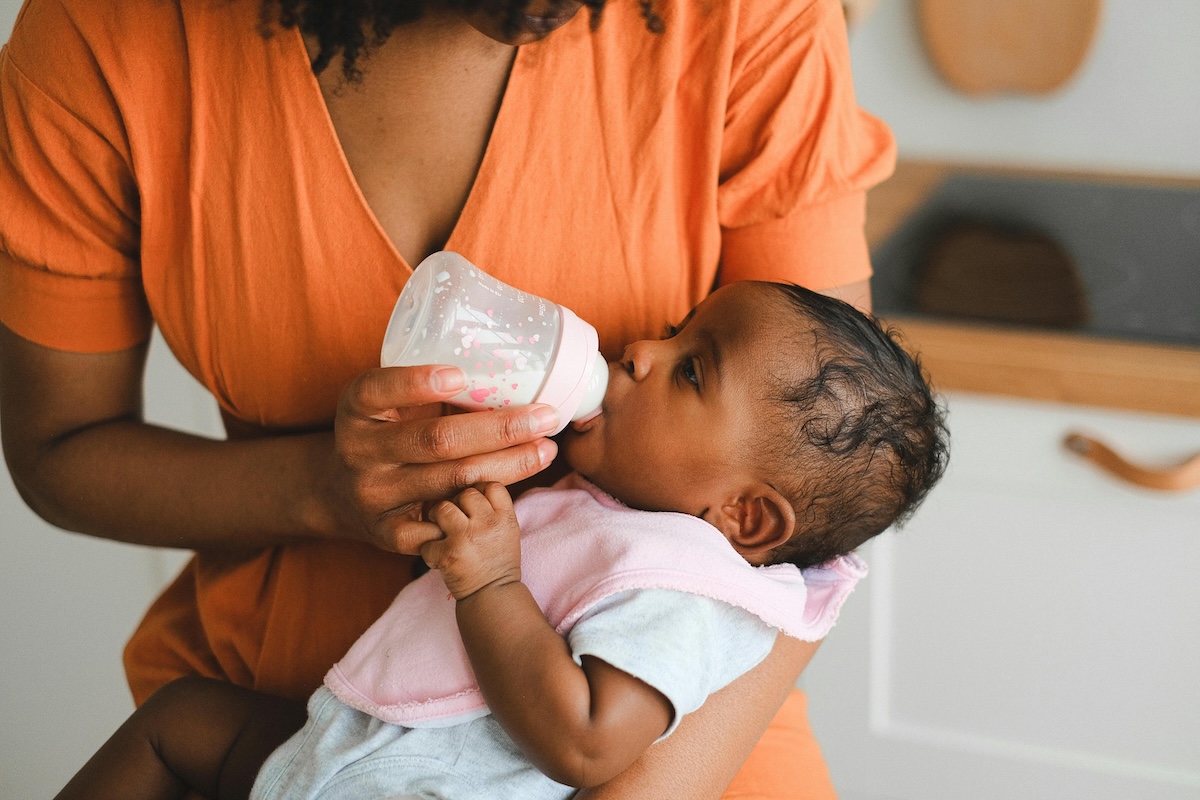My 8-month-old is switching from breastfeeding to formula, and my good friend Google says that babies should not exceed 32 ounces per day of formula. The transition between breast milk and formula via bottle has shown he was drinking more than 32 ounces of breast milk per day. What is the science behind this recommended limit?
—Colleen
Your good friend Google is right that the American Academy of Pediatrics guidelines do say this — no more than 32 ounces of formula per day due to concerns about vomiting, loose stools, and early development of obesity. Confusingly, though, when we talk about infant feeding in general, formula and breast milk trade off ounce-for-ounce (as in: the intention is one ounce of formula is the nutritional equivalent of one ounce of breast milk). The AAP doesn’t put a limit on breast milk consumption.

There is no very coherent way to pull these together.
What I believe is going on is that, in general, formula consumption (rather than breast milk) is correlated with childhood obesity. As I have written about before, those correlations are not causal. In the best data, we do not see that link, but it is still commonly cited as a reason to breastfeed. Infants who drink more formula are more likely to be overweight — again, correlation and not causality. But those correlations often drive policy.
I believe the recommendation is based on these links and the concern that if you feed your baby too much formula, they will be obese later on. There really is nothing in the data that would suggest this. It is reasonable to expect a baby to consume the same number of ounces of formula as they did of breast milk.
A note: Your child will probably start having more solid food over the next few months and may dial down their formula (or breast milk!) consumption accordingly.
Community Guidelines




















Log in
My 4 month old baby boy recently transitioned from breastmilk to bottles and he consistently takes in approx 40 oz a day. I spoke with the pediatrician who said that the recommended range is 32-42 oz per day based on baby’s growth curve including weight and length. My baby’s curve indicates that 40-42 oz per day is on point and that 6-7 oz bottles per feeding is not a concern but appropriate for his size. This relieved my anxieties about over feeding him and I can rest assured he is getting what he needs – he’s just a big boy!
I should note that the transition was from breastmilk to bottles of formula. Sorry for that typo!
The AAP doesn’t put a limit on breast milk consumption because they assume that most breastfed babies will get a large proportion of their milk directly from the breast. There are relatively few exclusively pumping parents who are concerned with the high mark of how much to feed; it’s much more common to stress about underfeeding because it’s difficult to exclusively pump enough breastmilk. Direct-from-breast milk overconsumption is typically regulated by the baby’s feeding patterns and also by the mother’s body: the majority of women won’t be physically able to overfeed their baby.
Kellymom, which I’ve found to be generally reliable and data-based, summarizes the existing research as “exclusively breastfed babies take in an average of 25 oz (750 mL) per day between the ages of 1 month and 6 months. Different babies take in different amounts of milk; a typical range of milk intakes is 19-30 oz per day (570-900 mL per day)” and “current breastfeeding research does not indicate that breastmilk intake changes with baby’s age or weight between one and six months” (emphasis in original). This data typically comes from weighing a breastfeeding baby before and after each feeding, which is hard to do with accuracy – they’re wiggly creatures!
(https://kellymom.com/bf/pumpingmoms/pumping/milkcalc/)
Professor Oster’s assertion that “one ounce of formula is the nutritional equivalent of one ounce of breast milk” is misleading because breast milk changes composition over the course of a feeding, over a day, and over a baby’s early months while formula is consistent. The parent’s body changes the composition of milk to keep up with the baby’s nutritional needs. But formula-feeding parents are directed to feed their babies a larger quantity as they age.
I think I read a Dr Spock quote about this a while ago, and I think he’s right about it. He said that people feeding a baby from a bottle were more likely to urge the baby to finish the bottle, since they don’t want to store or toss just an ounce or two of precious formula or breastmilk. Breastfeeding women tend to “take the baby’s cue” and let the baby off as soon as they look done. The main moral of this story is “ignore that you’re full, clean your plate” is probably a philosophy that tends toward obesity regardless if how early you start it.